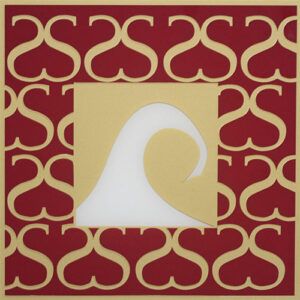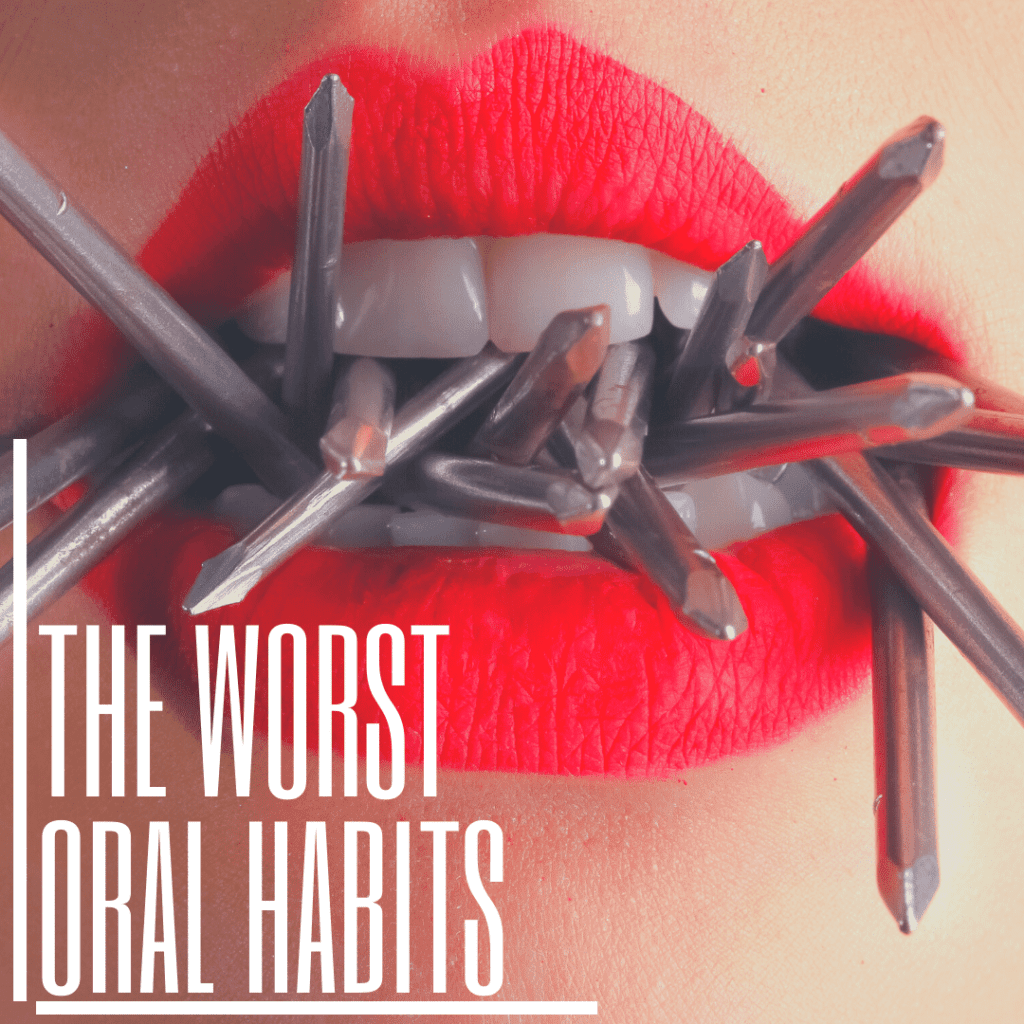Habits are behaviors that we practice regularly, whether we are aware of it or not. We all have habits. Some of our habits are good and help us improve our overall well being. Others, unfortunately, are bad and can be detrimental to our overall well being. While there are a multitude of habits to consider, we are going to focus solely on habits that affect your oral health.
For starters, there are good oral habits that can help to maintain or improve your oral health. These include brushing twice a day for two minutes with a soft toothbrush, using fluoridated toothpaste, and flossing once a day. While these are the basic good oral habits, your dentist may also recommend additional habits to practice depending on your individual oral health needs.
Conversely, there are bad oral habits that can be detrimental to your oral health. For the sake of preventing your oral health from declining, we are going to focus on these habits in order to recommend what NOT to do. With that being said, here are some of the worst oral habits:
Brushing Too Hard
Contrary to popular belief, brushing your teeth really hard does not actually make them cleaner or brighter in color. Instead, brushing too hard can actually damage your tooth enamel and cause tooth sensitivity. Not only that, but you may also experience gum recession from brushing too hard. When brushing your teeth, you should use a soft toothbrush to gently massage your teeth using small circular motions.
Bruxism
Bruxism is the term used to describe the behavior of grinding or clenching your teeth together. Many people are unaware that they are bruxers until their dentist points it out. This is because the majority of teeth grinding and clenching occurs at night while you sleep. The force generated from bruxism can eventually lead to enamel erosion, chipped or cracked teeth, and jaw problems such as temporomandibular joint disorder (TMD). To prevent these things from happening, your dentist will prescribe a custom mouthguard to protect your teeth and alleviate the stress on your jaw joint.
Chewing Ice
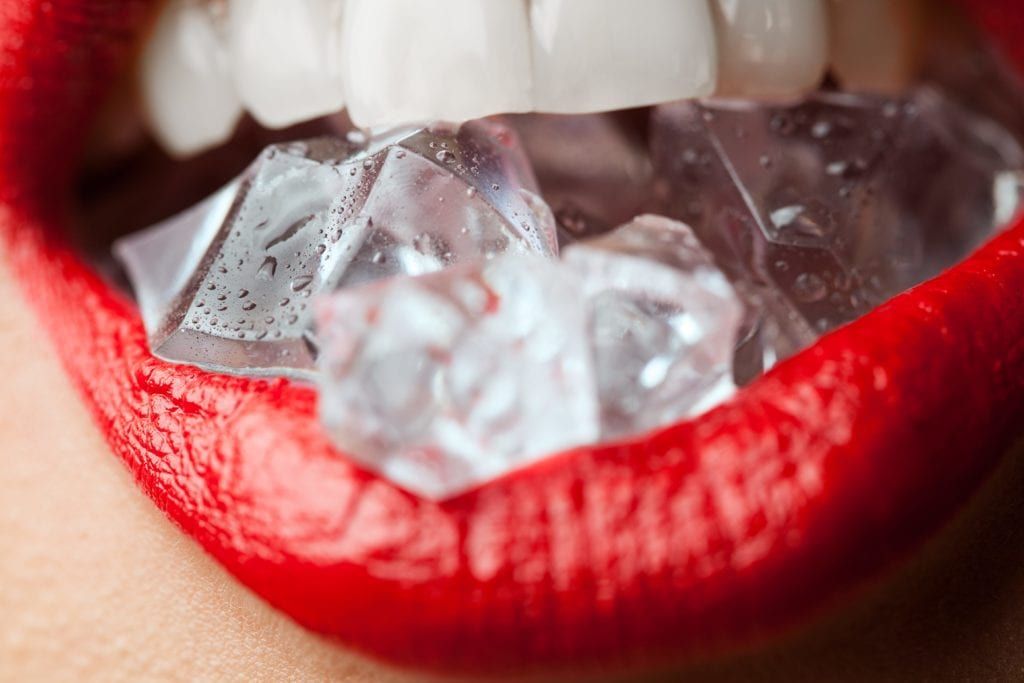
Chewing on ice is dangerous because both ice and enamel are crystalline structures at the molecular level. When two crystalline structures are grinded against each other, one will inevitably break. Although this is usually the ice, there are cases when the enamel may break instead. Additionally, ice chewing can dislodge fillings and be damaging to other dental restorations. If you find yourself craving ice, you may want to have your iron levels checked because this behavior is associated with an iron deficiency.
Nail Biting
Nail biting is a common habit associated with anxiety. While many people immediately recognize the damage it does to their nails, not as many realize that it can also lead to chipped teeth. In addition to damaged teeth, nail biting can also lead to jaw dysfunction because it causes the jaw to maintain a protruded position for extended periods of time. If you are a nail biter, there are some options to help you stop biting your nails such as bitter-tasting nail polish.
Using Teeth as Tools
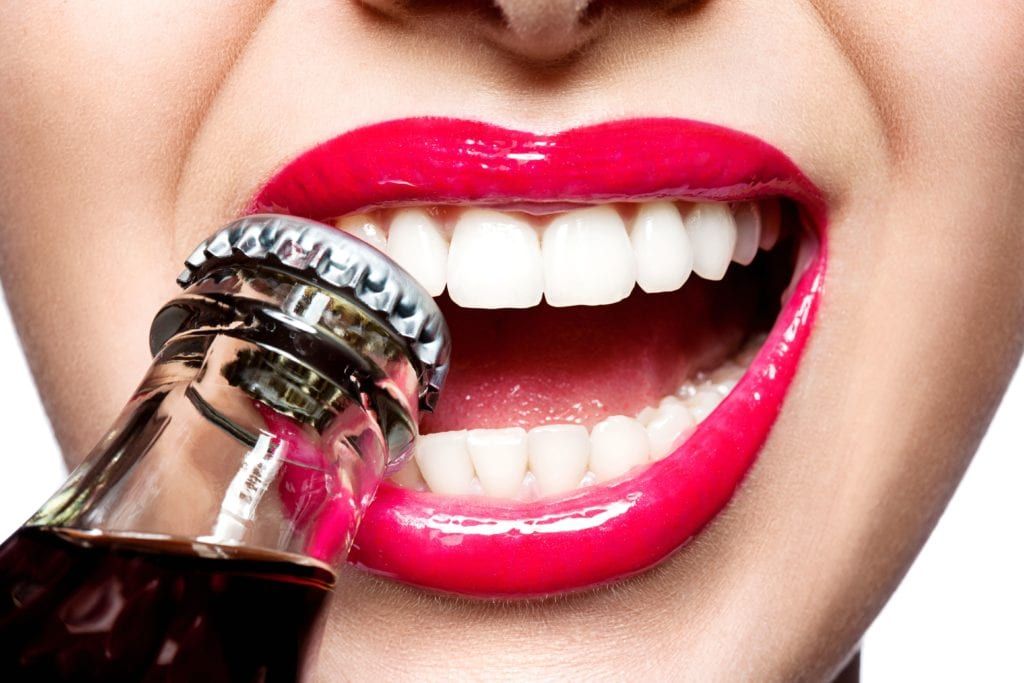
Your teeth are for biting and chewing food. Using your teeth for any other function can be potentially damaging. This means that behaviors such as using your teeth to hold, open, or cut things should be avoided to prevent your teeth from becoming chipped or cracked.
Overall, these are some of the worst oral habits that pose a threat to your oral health. These habits can unfortunately result in chipped or cracked teeth, damage to your enamel, and jaw dysfunction. Now that you are aware of these bad oral habits, it is important that you eliminate them in order to preserve your oral health.
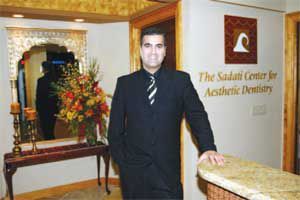
Dr. Sadati possesses extensive experience in all aspects of advanced restorative dentistry, with an emphasis in cosmetic and implant dentistry. He has attained Accredited Fellow status in the American Academy of Cosmetic Dentistry (AACD), the most rigorous, demanding credentialing process in the world. He is the only AACD Accredited Fellow in South Florida.
